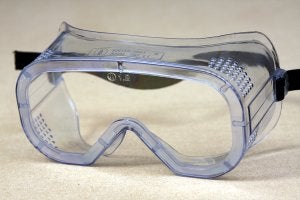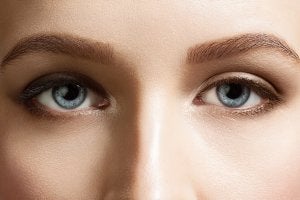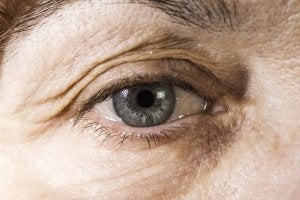-
Practicing Eye Safety at Home
 October is home eye safety month, which provides you and your eye doctor with the perfect opportunity to discuss eye care in Chicago , and how to practice eye safety at home. About half of the country’s annual eye injuries occur in the home, while undergoing normal daily tasks. Protecting your eyes in your home will greatly reduce your risk of needing costly visits to the ophthalmologist for eye treatments or eye surgery. Here are some ways that you can practice at-home eye safety.
October is home eye safety month, which provides you and your eye doctor with the perfect opportunity to discuss eye care in Chicago , and how to practice eye safety at home. About half of the country’s annual eye injuries occur in the home, while undergoing normal daily tasks. Protecting your eyes in your home will greatly reduce your risk of needing costly visits to the ophthalmologist for eye treatments or eye surgery. Here are some ways that you can practice at-home eye safety.Wear Eye Protection When Necessary
Most people don’t think it’s necessary to wear protective eye gear in their own home. Safety goggles are completely essential when performing some household activities. If you’re using tools for household repairs or renovations, such as hammers, drills, or saws, you must protect your eyes from dust, sawdust, flying debris, or tool malfunction. Eye protection is also necessary when spraying certain hazardous chemicals or cleaning products inside or outside of the home. You should also always wear eye protection when playing sports at your home.
Use Extreme Caution When Handling Chemicals
When you’re using hazardous chemicals or dangerous cleaning agents in your home, you should always use extreme caution. Read all warning labels prior to use, and never mix two products together without consulting with a professional. Use hazardous products in a well-ventilated area. If there is any chance that the products will become airborne, or if you’re spraying them inside or outside, protect your eyes from chemical contact. Always wash your hands thoroughly after using any hazardous chemicals or cleaning products.
Keep Pathways and Walkways Clear
If you trip and fall, you run the risk of injuring your eyes, as well as other parts of your body. Ensure that all walkways, pathways, and staircases have sufficient lighting. Stairs should also have handrails. To prevent accidents, keep all common walkways, pathways, and staircases free from hazards and debris, such as shoes, toys, appliances, and furniture. Secure any rugs or carpeting so that they don’t provide a trip or fall risk.
-
A Look at the Importance of Safety Eyewear
Eye injuries can necessitate costly eye care or even eye surgery from an ophthalmologist in Chicago . Wearing safety eyewear in your home, workshop, garage, yard, or workplace can protect your eyes from injury and damage. Your eye can sustain significant injury from airborne chemicals, dust, and debris, so it’s important to protect yourself from potential harm.
Watch this video to learn more about the importance of safety eyewear. You’ll learn about the safety risks in the home and workplace that can cause serious injury. Taking the necessary eye care precautions can significantly reduce your risk of injury and damage to your eye.
-
Focus on Eye Injury Prevention
 Because October is eye injury prevention month, your eye doctor in Chicago may give you certain eye care tips. These tips will help you reduce your risk of suffering from a painful eye injury in or out of your home. Eye injuries often necessitate costly visits to an ophthalmologist for eye care or eye surgery, and some injuries can be permanent or debilitating. Here are some key eye injury prevention tips.
Because October is eye injury prevention month, your eye doctor in Chicago may give you certain eye care tips. These tips will help you reduce your risk of suffering from a painful eye injury in or out of your home. Eye injuries often necessitate costly visits to an ophthalmologist for eye care or eye surgery, and some injuries can be permanent or debilitating. Here are some key eye injury prevention tips.In Your Home
If you’re cleaning your home with any hazardous or dangerous cleaning products, exercise extreme caution. Such products include bleach, ammonia, and specialty cleansers. Do not mix any products together without first consulting a professional, and use all products in a well-ventilated area. When using any airborne products, such as bug spray, hairspray, body spray, be sure the nozzle of the spray is pointed away from your face, or that your eyes are closed or you’re wearing eye protection.
In Your Garage or Workshop
If you’re using power tools, it’s essential that you wear protective eyewear, such as safety goggles. Safety goggles will protect your eyes from dust and sawdust, flying particles and debris, and broken pieces that may become airborne as a result of faulty equipment. In your garage, you may be subject to harmful fumes, chemicals, and sparks that can cause damage to your eyes. If you’re working on your car, wear protective eye gear to ensure that you won’t suffer from an eye injury.
In Your Yard or Garden
Lawnmowers and other lawn and gardening equipment can launch rocks and other small pieces of debris into the air. Wear safety goggles to prevent these projectiles from injuring your eyes. If you’re spraying your garden with insecticide or other chemicals, always point the nozzle of the spray bottle away from your face, and wear protective eyewear. If you’re playing sports or games in the yard, protect your eyes from flying balls or other sports equipment.
-
Healthy Aging Month: Protecting Your Eyes as You Get Older
 As you age, you become more vulnerable to certain eye conditions and diseases. These conditions can cause impaired vision and even blindness if they aren’t treated by an eye doctor. If you’re getting older, an eye doctor or ophthalmologist near Chicago can help you maintain the health of your eyes. Keep reading for some valuable tips on how to protect your eyes as you age.
As you age, you become more vulnerable to certain eye conditions and diseases. These conditions can cause impaired vision and even blindness if they aren’t treated by an eye doctor. If you’re getting older, an eye doctor or ophthalmologist near Chicago can help you maintain the health of your eyes. Keep reading for some valuable tips on how to protect your eyes as you age.Eat a Healthy Diet
A healthy diet can go a long way towards maintaining the health of your eyes. Fresh, leafy greens, fruits, and a diet rich in vitamin A, vitamin C, and antioxidants can greatly reduce your risk of developing eye conditions or diseases. Cataracts and macular degeneration occur much less often in those who eat healthy diets that are rich in vitamins, minerals, healthy proteins, omega-3 fatty acids, and lutein. You should also consume plenty of fresh fruit, vegetables, whole grains, healthy fats and protein, and water.
Take Eye Vitamins and Vision Supplements
Nutritional supplements combined with a healthy diet and regular exercise can significantly lower your risk of vision problems and eye conditions. Beta-carotene, zinc, vitamin C, and vitamin E are crucial for maintaining the health of your eyes. Your eye doctor may recommend that you take a daily multivitamin that also contains lutein, zeaxanthin, omega-3 fatty acids, and copper—and supplement that multivitamin with a daily dose of vitamin B complex with folic acid.
Visit an Eye Doctor Regularly
The best way to detect an eye condition early enough to receive successful treatment is by regular visits to an eye doctor or ophthalmologist. Your eye doctor can do regular screenings for macular degeneration, glaucoma, cataracts, astigmatism, and eye cancer. The sooner these eye conditions are diagnosed, the more effective your treatment will be. Your eye doctor can also recommend nutritional and lifestyle changes that will decrease your risk of developing certain dangerous eye conditions.
-
What Is a Cortical Cataract?
 A cataract is an eye condition that causes worsening vision and eye problems if it is not treated by an eye doctor. The symptoms of cataracts include blurry vision, sensitivity to light, poor night vision, double vision, seeing halos around light sources, distortion of color perception, and frequent changes in contact lens or eyeglasses prescriptions. Cataracts can be diagnosed and treated by an eye doctor or ophthalmologist near Chicago .
A cataract is an eye condition that causes worsening vision and eye problems if it is not treated by an eye doctor. The symptoms of cataracts include blurry vision, sensitivity to light, poor night vision, double vision, seeing halos around light sources, distortion of color perception, and frequent changes in contact lens or eyeglasses prescriptions. Cataracts can be diagnosed and treated by an eye doctor or ophthalmologist near Chicago .There are three primary types of cataracts: subcapsular cataracts, nuclear cataracts, and cortical cataracts. Cortical cataracts cause a worsening of vision that begins in the peripheral vision. You may notice cloudy, white floaters that progress from the periphery of your vision towards the center. Cortical cataracts occur in the lens cortex, or the part of the eye’s lens that surrounds the central nucleus.
If you suffer from cataracts, an eye doctor or ophthalmologist may first try to correct your vision using eyeglasses or contact lenses. If this treatment doesn’t work and the cataracts progress, you may need to undergo cataract surgery. Often, cataract surgery is the only truly successful method of cataract treatment.
